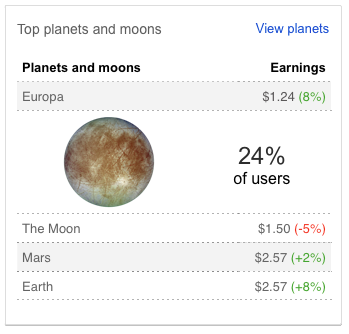 Last night, an anonymous person claiming to have worked for the Google AdSense department “for several years” posted a statement titled “Google AdSense Leak” on Pastebin which supposedly details a standardized practice of fraud within Google.
Last night, an anonymous person claiming to have worked for the Google AdSense department “for several years” posted a statement titled “Google AdSense Leak” on Pastebin which supposedly details a standardized practice of fraud within Google.
The full document is a bit all over the place and unclear in many parts, but the allegations can be broken down to a few key points. According to the anonymous accusations, Google experienced financial issues in 2009 and the AdSense team was told to “tighten the belts” as Google was having to pay too many publishers too much money. To curtail this, the department put a secret initiative into effect that would ban publishers making more than $5,000 per month from AdSense, beginning in March 2009.
The practice becomes especially shady as the supposed Google employee states “We were told to begin banning accounts that were close to their payout period… The purpose was to get that money owed to publishers back to Google AdSense while having already served up the ads to the public.”
The accuser also says they were told the reasons for these practices was that “it was need for the company, and most of these publishers were ripping Google off anyways, and their gravy train needed to end.” Employees who disagreed over the practices were supposedly reprimanded and ridiculed for not being team players, and a small number allegedly resigned right then.
From there, the statement claims that Google wanted to further automate the process, so it set up the “AdSense Quality Control Color Codes” system intended to identify lucrative publishers to ban, while protecting larger corporations or publishers who were likely to create bad press.
The claim says some publishers were even aware of the system and took advantage by “Click-Bombing” their competitors. “Click-Bombing” is supposedly a practice where publishers would repeatedly over-click their competitors’ ads to get them flagged and banned by Google’s fraud detection service.
If true, these accusations could do significant damage to Google and expose a company culture of corruption. However, numerous analysts have found red flags all throughout the text indicating it is a farce. TechCrunch has a pretty thorough take down of the claims. Most importantly, it doesn’t appear the creator of the document ever worked for Google, at least within the “AdSense division”. For one, there is no formal “Google AdSense division” and a Google employee would more likely refer to it by the official internal title “Online Sales and Operations”.
The writer also seems to be unaware of Google’s extensive company culture. He refers to “being a team player”, but several have noted that actual employees call that “being Googley”. There are countless other discrepancies throughout the document, mostly relating to using terms that those inside Google would not, but there are also issues with the writer’s understanding of AdSense policies and internal functionality.
The biggest problem is more than vocabulary inconsistencies and wrong information. As repeatedly pointed out by pretty much everyone who has read the article, the biggest issue is the flawed belief at the core of these supposed policies. While this strategy could potentially save Google significant money in the short term, it would absolutely destroy their long-term platform viability. Google works with more than 2 million publishers and paid out several billion dollars to publishers and advertisers last year. Why risk a lucrative advertising platform’s future for a short term (relatively small) savings?
Of course, Matt Cutts has also issued a statement via Twitter calling the claims B.S. and Google has issued formal statements indicating the claims are false.
@Urgo @kittiesmamayt if they were really an employee, it's not hard to give some proof. And the whole "AQ3C" thing? Complete BS.
— Matt Cutts (@mattcutts) April 30, 2014






